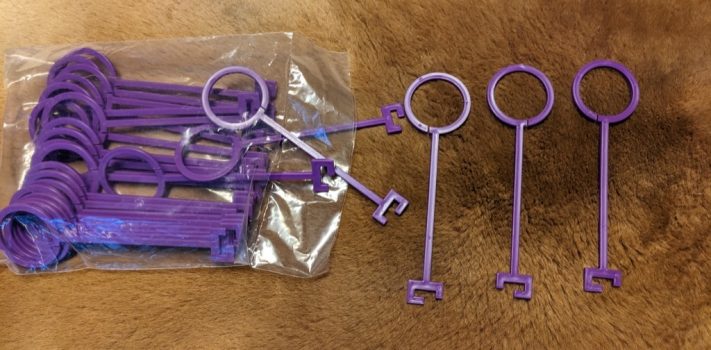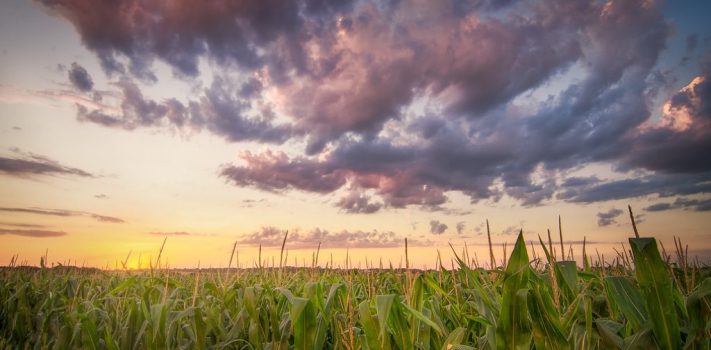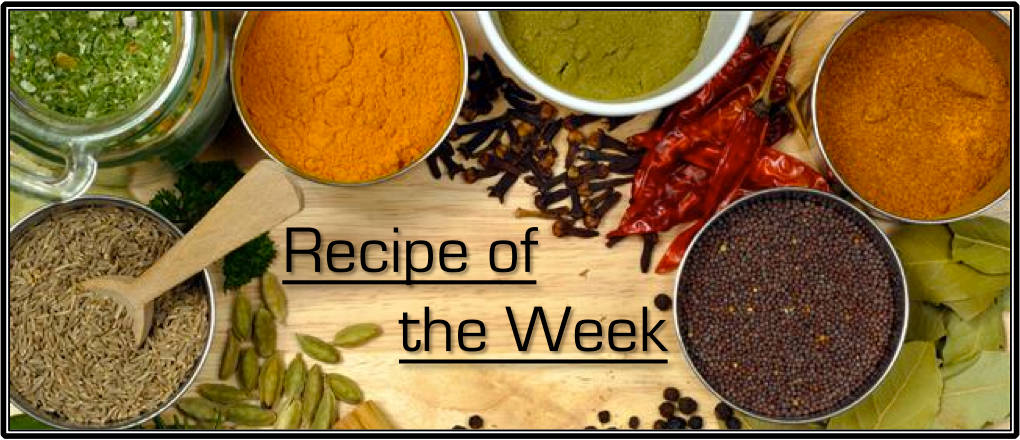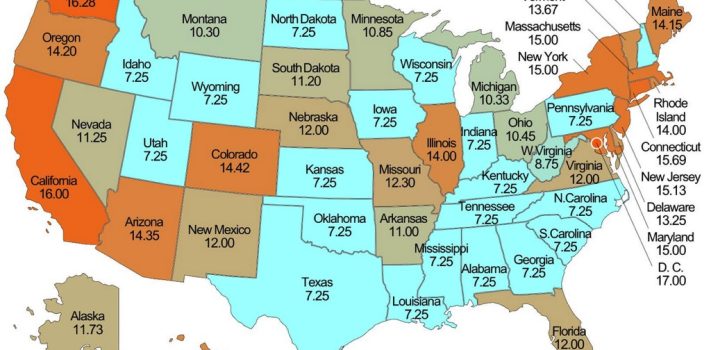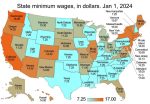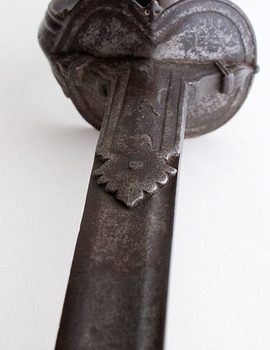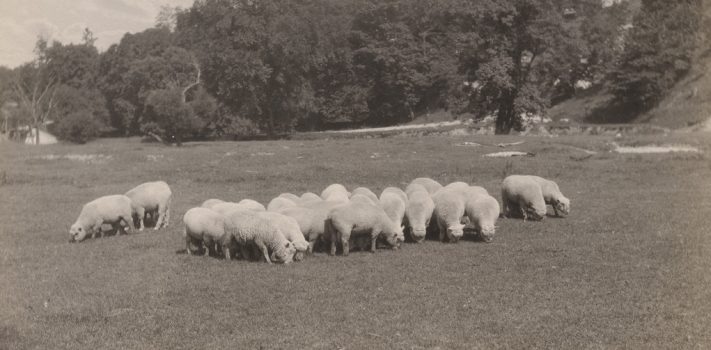(Continued from Part 3. This concludes the article.)
Swords and Machetes
Swords are iconic weapons, typically owned by the wealthier in history due to the cost of making them. Swords are one of the few weapons to be personalized and given names, such as Excalibur, the magical sword of King Arthur. Today one can order hand-crafted swords, some with jewels and works of art, that may cost upwards of US $10,000, or much more. Swords are collector’s items, and once one starts, a passion, if not fanaticism, develops to get another, then another. This mania should be resisted by the sensible survivalist unless wealthy, since before one knows it, a room full of swords has grown up around you, and swords are inedible.
Earlier, I discussed the physical weaknesses of swords, relative to other melee weapons. Swords are in general a compromise weapon, inferior to the spear for thrusting, and the axe for chopping, although some swords such as the Chinese war sword (dadao), while being poor stabbers, are tremendous choppers. Some swords such as the European rapiers are excellent thrusters, not so good as cutters having relatively thin blades.
Swords can be divided into “short” swords (e.g., the Roman gladius, Greek xiphos, Japanese wakizashi, the “small sword”), medium length swords (the Japanese katana, European hand and a half sword, Viking sword), and long swords (rapiers, the great swords, English broad sword, Zweihander, Scottish claymore).
Another categorization is between swords typically used with one hand, such as the Viking sword, and those designed for two hands, such as the Scottish Claymore. The distinction is relevant to battle tactics, since one-handed swords work better with a shield, as with the Viking sword, or “left hand weapon,” than attempting to use the larger two-handed swords with one hand. All types of swords, regardless of size could be either single or double edged; both have advantages, with the single edge allowing hard blocking on the unsharpened edge, and the double edge allowing some additional cutting strategies to the single edge, such as quick “back cuts,” as well as having an extra blade edge when one gets blunt.
So, what swords should one get, if the decision is that swords are the preferred melee weapon? I have in principle no objection to any choice of the above categories, bearing in mind that whatever sword one gets, it needs to be high quality. Cheap swords can break and endanger the user as much as the opponent; it has happened to me. Thus, one will need to get high-quality blades from companies such as Albion, Angus Trim (Gus Trim Swords), Arms and Armour, Cold Steel, Dragon King, Hanwei, Kingston Arms, Musachi Swords, and United Cutlery to name but a few. Kult of Athena (https://www.kultofathena.com) is a site worth examining.
There are always numerous custom-made swordsmiths in America and most Western countries; I had a Conan the Barbarian-type great sword made, which is almost six feet in length! I also purchased back in the day a ceremonial kukri with a blade 6mm thick, and three feet in length; it is for decapitating a water buffalo with one strike; great swords for training but not practical fighters, so choose well! As far as custom made blades go, many people on YouTube have been over-joyed at the high quality and reasonable price of the Nepal makers, Ex-Gurka Khukuri House (EGKH), and Khukuri House. The alternative to this is blacksmithing oneself to make swords. [71] I have just started doing this with my son, and we have made our own heavy-duty sword/machete hybrids, long Viking seax style, with 6mm thick blades of spring steel from an industrial spring company. Early days yet.
Good swords are somewhat expensive, and this was an issue back in history, as it is now is with the cost-of-living crisis, and impending economic collapse. I would not be able to buy the blades that I have today, where getting basic supplies is difficult enough. For that reason, a compromise position may be to get the larger two-handed machetes from Cold Steel; two reasonably priced ones are the Chinese War Sword machete, and the katana machete. The former is the best machete I have seen for clearing tough scrub, for the price (there are of course heavy-duty machetes from various companies such as Condor that may be better, but which cost more, as it should). The katana machete, although having a somewhat uncomfortable hilt, is a good cutter and stabber with its tanto point. I have been using machetes on the farm for around 55 years, from Tramontina to Cold Steel. I do not think that having just these weapons is something to lament about, as these 1055 spring steel blades are highly durable and resilient. As well, with cash constrains and the need to equip an entire family, purchasing a number of high-quality swords will be pricey, but replacing them by machetes could enable everyone in the family or team, to be armed, and perhaps with many spares.
Knives
Knife fights in urban warfare today are typically not duals as were conducted by legendary knife fighters such as Jim Bowie (1796-1836) and Argentinian gaucho knife fighter Juan Moreira (died, April 1874), but sneaky, deceptive affairs. Thus, in one video clip I saw last year, now deleted, there was a confrontation between two teenage gangs, in some sort of closed shopping mall. Two alphas exchanged threats. A second team member decided to moved forward to threaten as well. He was met by a slash to his throat, the knife coming out of seemingly nowhere. He staggered off, bleeding profusely from severed arteries, collapsed and died. But the knife in the post-apocalyptic wastelands will, I conjecture, if used as a weapon, be more along the lines of Jim Bowie’s fights.
While knives are extremely useful as tools for survival, be they fixed blades or folders, but our concern here is with a fighting knife to be on one’s belt at all times. Swords and machetes are inconvenient, but not impossible, to carry when doing manual labor, but the knife can be at one’s side if things get unexpectedly violent. One can imagine that the inconvenience of having a sword, machete, hammer or axe on one’s belt on a steaming hot day, may lead to the weapons not being carried, and that will be the day that they are needed. Thus, Harry Wolhuter was a game ranger in South Africa. In the Kruger National Park, he was attacked by two lions while on horseback, and dragged away by one lion. He drew his knife, felt for the lion’s heart, then stabbed it, killing the lion. [72] He must have been glad that he had a knife on his belt.
I follow the school of Bill Bagwell, who argued in Soldier of Fortune magazine that one should be armed with a fighting knife, typically a fixed blade, full tang, with a blade of 9 inches or more. [73] There are numerous high-quality knives that fit that description, from companies such as Gerber, Benchmade, Kershaw, CRKT, Cold Steel, Condor, Aitor, Fallkniven Knives, Ontario Knife Company, Work Tuff Gear and MTech, to name but a few. As with swords there are numerous custom knife makers as well, in most Western countries, and Nepal, such as with the Donnie B All Day series of Bowies produced by the Khukuri House.[74] In general the type of fighting knife I have in mind, be it a Viking seax, gaucho facon, Bowie, Japanese tanto, or even Wing Chun butterfly knives, will not be cheap, and indeed, one has to pay for high quality, for steels such as San Mai, CPM-3V tool steel, as in Cold Steel’s Natchez Bowie. With everything else one needs, trying to put aside money for knives like this on a budget, is just not going to happen today for most prepping people.
However, there are budget knives that will be adequate for everyday carry apocalypse self-defense. Cold Steel has some reasonably priced machete-knives. The Black Bear Bowie has a 12-inch 1055 carbon steel blade, 2.8 mm thick, full tang, with a steel guard. The Cold Steel Royal kukri is a better thruster than the usual kukris (Lynn Thompson former owner of Cold Steel, recommends sharpening about 1-2 inches on the side opposite the main blade for better penetration). This weapon even survived the destruction tests by Joe X (video on YouTube, now deleted when Joe got canceled). There are also worthwhile machete knives in the Cold Steel stable, including the Barong (18-inch blade), the Tanto machete (13-inch blade) and the gladius machete, with an 18-inch blade of 1055 steel. Of these, all of which I have, the gladius is a most impressive weapon, with a wicked point and two sharp edges; soldiers of ancient Rome would be happy to have such a blade, and cheap as well. I also have the MTech tactical kukri machete, which has a 12-inch 440 stainless steel blade, and is .25 inches thick. The rubberized handle gives excellent grip, and this weapon is only priced a bit more than the Cold Steel versions.
Two other recommendations are first, the Kershaw Camp 18, with an 18-inch full tang 65 Mn steel. The handle is rubberized and extremely comfortable; a pleasure to hold. The sheath can be adjusted for both left and right handers, which is something the other knife makers do not address. That is probably the limit of size as far as day-to-day carry goes. Second, I also have the MTech Combat machete, 4 mm thick 440 stainless steel, with an 18.73-inch blade. It is full tang, but the handle is a little slick and needs some minor work in my opinion, but still a great weapon to have at one’s side when the chips are down.
Shields
Shields used to be relatively inexpensive on eBay; I bought some from India including Viking shields, and an all-metal one. But the prices have gone up, like everything else in the cost-of-living crisis, and now a Viking-style shield, usually associated with LARP, may cost around the US $200 mark. But one can cut corners here and make one’s own if bosses, the steel cups, can be purchased from medieval shops, or eBay. All that is needed is to cut out the shield from plywood, perhaps marine ply. If there are no bosses available, a rectangular trowel could be drilled and screwed into the wood. And even more improvised, in a pinch, the trowel could be duct taped to the shield, with multiple layers encircling the front and back of the shield. It is now a tool that is not meant to last the ages, but rather to get through one battle.
The shield is an under-rated side arm; in facing desperate, violent people, there is nothing preventing them from attacking with throwing weapons, such as sharpened steel rods, ball bearings, even hunks of glass. If the weapon one has is a two-handed one, there could be a big problem then. Even rocks thrown with force can be deadly. Hence, I would favor having a one-handed weapon and a shield for melee combat, just to cover the bases. With a shield, even a claw hammer could in a pinch be used.
Conclusion
This article has discussed in the first part, the Mad Max multigenerational collapse scenario, why it is more likely than most survivalists think. This collapse of civilization will lead to a great die-off of the bulk of the human race. During this time of tribulation, the world will experience hyper-violence. In some jurisdictions such as the United States, this threat can be met with firearms. But in other jurisdictions where the gun banners have won, things will revert back to melee weapons. This is also the likely future even in the US some decades after the collapse. The article has looked at melee weapon choice, with a concern for economics and cost, given the tough economic times we are in, and the likelihood of economic collapse coming in the near future.
Only brief mention has been made of training issues. In my next planned article, more will be said about this, in the context of examining the relevance of unarmed martial arts in a collapse of civilization/Dark Age 2.0 scenario.
References
[1] See: “Letter Re: Swords and Bows for that Dreaded Multigenerational Scenario,’ September 10, 2006, https://survivalblog.com/2006/09/10/letter-re-swords-and-bows-for/; September 11, 2006, https://survivalblog.com/2006/09/11/letter-re-swords-and-bows-for-1/. September 12, 2006, https://survivalblog.com/2006/09/12/letter-re-swords-and-bows-for-2/; September 14, 2006, https://survivalblog.com/2006/09/14/letter-re-swords-and-bows-for-3/; September 15, 2006, https://survivalblog.com/2006/09/15/letter-re-swords-and-bows-for-4/; September 16, 2006, https://survivalblog.com/2006/09/16/letter-re-swords-and-bows-for-5/; September 17, 2006, https://survivalblog.com/2006/09/17/letter-re-swords-and-bows-for-6/; September 19, 2006, https://survivalblog.com/2006/09/19/letter-re-swords-and-bows-for-7/; September 21, 2006, https://survivalblog.com/2006/09/21/letter-re-swords-and-bows-for-8/; September 23, 2006, https://survivalblog.com/2006/09/23/two-letter-re-swords-and-bows/; September 27, 2006, https://survivalblog.com/2006/09/27/letter-re-swords-and-bows-for-9/; March 31, 2007, https://survivalblog.com/2007/03/31/letter-re-swords-and-bows-for-10/.
[2] Ibn Khaldun, Muqaddimah, (Princeton University Press, Princeton, 2004).
[3] E. Gibbon, The History of the Decline and Fall of the Roman Empire, edited by D. P. Womersley, (Penguin, New York, 2001).
[4] Gibbon, as above, p. 435.
[5] W. Ophuls, Immoderate Greatness: Why Civilisations Fail, (CreateSpace, 2012).
[6] P. Heather, Empires and Barbarians: The Fall of Rome and the Birth of Europe, (Oxford University Press, Oxford, 2010).
[7] P. Servigne and R. Stevens, How Everything Can Collapse: A Manual for Our Times, (Polity, Cambridge, 2020).
[8] J. Diamond, Collapse: How Societies Choose to Fail or Succeed, (Viking, New York, 2005).
[9] P. Turchin, Ages of Discord: A Structural-Demographic Analysis of American History, (Berestra Books, New York, 2016).
[10] W. Ophuls, Immoderate Greatness: Why Civilisations Fail, (CreateSpace, 2012), p. 65.
[11] W. Durant, Caesar and Christ: The Story of Civilization, Volume 3, (Simon & Schuster, New York, 1944), p. 665.
[12] O. Spengler, The Decline of the West, Volume One: Form and Actuality, (Alfred A. Knopf, New York, 1926).
[13] J. B. Glubb, The Fate of Empires and Search for Survival, (William Blackwood, Edinburgh, 1978).
[14] A. J. Toynbee, A Study of History, (Oxford University Press, London, 1949).
[15] R. Vacca, The Coming Dark Age, (Doubleday, New York, 1973).
[16] J. Tainter, The Collapse of Complex Societies, (Cambridge University Press, Cambridge, 1988).
[17] M. Anton, “The Pessimistic Case for the Future,” July 21, 2023, https://compactmag.com/article/the-pessimistic-case-for-the-future; H. Robertson, “Complex Systems won’t Survive the Competence Crisis,” June 1, 2023, https://pallodiummag.com/2023/06/01/complex-systems-wont-survive-the-competence-crisis/.
[18] R. D. Kaplan, The Coming Anarchy, (Vintage Books, New York, 2002); S. Dekker, Drift to Failure: From Hunting Broken Components to Understanding Complex Systems, (Ashgate, Surrey, 2011); N. Ferguson, Doom: The Politics of Catastrophe, (Penguin Press, London, 2022).
[19] M. Showalter, “Has Haiti been Taken Over by Cannibals? March 11, 2024, https://www.americanthinker.com/blog/2024/03/has_haiti_been_taken_over_by_cannibals.html.
[20] As above.
[21] J. Taer, “Florida Border Agents Placed on High Alert for Refugees Following Breakdown of Order in Haiti,” March 12, 2024, https://nypost.com/2024/03/12/us-news/florida-border-agents-on-high-alert-for-haitian-refugees/; E. Blackshaw, “Gang-Ravaged Haiti ‘is Real-Life Mad Max’ on the Brink of Complete Collapse,” March 18, 2024, https://www.dailystar.co.uk/news/world-news/gang-ravaged-haiti-is-real-32379446.
[22] T. Durden, “ “I Hope Public is Waking Up”: Border Invasion Sparks Migrant Crime Crisis in Major Cities,” February 23, 2024, at https://www.zerohedge.com/political/i-hope-public-waking-border-invasion-sparks-migrant-crisi-major-cities; E. Lendrum, “Apprehended Illegal Alien Admits to Plans to ‘Make a Bomb’ in the US,” March 18, 2024, at https://amgreatness.com/2024/03/18/apprehended-illegal-alien-admits-to-make-a-bomb-in-the-us/.
[23] Mike in Alaska, “An Illegal Alien Military Invasion,” March 5, 2024, https://survivalblog.com/2024/03/05/illegal-alien-militry-invasion-mike-in-alaska/.
[24] M. McDaniel, ‘The Police Won’t Protect You; You’re On Your Own,” December 13, 2023, https://www.americanthinker.com/blog/2023/2/the_police_wont_protect_you_youre_on_ your_on__own.html; M. O’ Brien, “Yes, Georgia, There is a Connection between Migrants and Crime,” March 18, 2024, https://www.americanthinker.com/blog/2024/03/yes_georgia_there_connection_between_migrants_and_crime.html.
[25] M. Snyder, Chaos, (Independently Published, 2023).
[26] As above.
[27] G. Bellafante, “Why the National Guard Can’t Ease All Fears About Riding the Subway,” March 14, 2024, https://www.nytimes.com/2024/03/14/nyregion/new-york-subway-national-guard.html.
[28] M. Snyder, “The Stage is Being Set for Social Chaos on an Epic Scale,” https://jimbakkershow.com/news/michael-snyder-the-stage-is-being-set-for-societal-chaos-on-an-epic-scale/.
[29] J. Reinl, “Border has Seen a 7,000 % Spike in Chinese Migrants Since 2021: Top Republican Warns of ‘Military-Age Men’ and Spies Entering US Who Would Wreak Havoc in any War Over Taiwan,” February 24, https://www.dailymail.co.uk/news/article-13118117/Border-spike-Chinese-migrants-Republican-military-men-spies-war-Taiwan.hml.
[30] https://infowars.com/posts/watch-welcome-to-machete-town-usa.
[31] T. Durden, “Increasing Psychopathic Behavior is a Sign that Society is on the Verge of Breaking Down,” January 17, 2024, https://www.zerohedge.com/political/increasing-psychopathic-behavior-sign-society-verge-breaking-down.
[32] https://michaelsnyder.substack.com/attacks-on-churches-are-up-800-percent…
[33] T. Durden, “California Seized Enough Fentanyl in 2023 to Kill global Population ‘Twice Over,” March 2, 2024, https://www.zerohedge.com/medical/california-seized-enough-fentanyl-2023-kill-global-population-twice…
[34] M. Adams, “The Democracy-Hating Fascist Left is on a Collision Course with Trump’s Election Victory … Here’s Why America Will be Turned into an Active War Zone in the Next 12 Months,” March 6, 2024, https://www.naturalnews.com/2024-03-06-fascist-left-on-a-collision-course-with-trumps-election-victory-html.
[35] W. Husebo, “Poll: Majority of Democrats Oppose Certification of 2024 Election if Donald Trump Wins,” March 11, 2024, https://www.breitbart.com/2024-election/2024/03/11/poll-majority-democrats-oppose-certification-2024 election-if-donald-trump-wins/.
[36] B. McGuire, Surviving Armageddon: Solutions for a Threatened Planet, Oxford University Press, Oxford, 2005).
[37] S, J. Smith & J. W. Smith, “Dark Age 2.0: The Coming Collapse of Civilization,” July 13, 2023, https://www.zerohedge.com/news/2023-07-12/dark-age-20-coming-collapse-civilization…
[38] A. Lardieri, “Revealed: US is Collaborating with Chinese Scientists to Make Bird Flu Strains More Infectious and Deadly is Part of $ 1 M Project – Despite Fears Similar Tests Unleashed Covid,” February 16, 2024, at https://www.dailymail.co.uk/health/article-13089105/us-chinese-scientists-bird-flu-strains…
[39] J. Pinkstone, “ ‘Deranged Loner’ Could Unleash New Pandemic on the World, Top Scientist Warns,” January 18, 2024, https://www.telegraph.co.uk/news/2024/01/18/deranged-loner-unleash-new-pandemic-world-lord-rees-warns/.
[40] L. Nolan, “AI Expert claims ‘Rebellious Self-Aware Machines’ Could End Humanity in 2 Years,” February 19, 2024, https://www.breitbart.com/tech/2024/02/19/ai-expert-claims-rebellious-self-aware-machines-could-end-humanity-in-2-years.
[41] J. Hayward, “State Department Report Calls for Government Agencies to Manage ‘Extinction-Level’ AI Threat,” March 15, 2024, at https://www.breitbart.com/tech/2024/03/15/state-department-report-cals-for-government-agencies-to-mangage-…
[42] https://news.nationalgeographic.com/news/2011/03/110302-solar-flares-sun-storms-earth-danger-carrington-event-science/; https://www.businessinsider.com.au/massive-1859-solar-storm-telegraph-scientists-2016-9?r=US&IR=T.
[43] A. T. Bradley, Disaster Preparedness for EMP Attacks and Solar Storms, (The Author, 2012), p. 17.
[44] P. Riley, “On the Probability of Occurrence of Extreme Space Weather Events,” Space Weather, vol. 10, 2012; S02012; doi: 10.1029/2011SW00734.
[45] T. Phillips, “Near Miss: The Solar Superstorm of July 2012,” NASA Science, July 23, 2014, https://science.nasa.gov/science-news/science-at-nasa/2014/23jul_superstorm.
[46] J. R. Dunn, “Dodging the Apocalypse,” March 23, 2023, https://www.americanthinker.com/articles/20232/03/dodging_the_apocalypse.html; NASA, “A Powerful Solar Eruption on Far side of Sun Still Impacted Earth,” https://blogs.nasa.gov/sunspot/2023/03/14/a-powerful-solar-eruption-on-far-side-of-sun-still-impacted-earth…
[47] Dunn, as above.
[48] See: https://www.washingtonexaminer.com/congress-warned-north-korean-emp-attack-would-kill-90-of-all-americans: R. J. Woolsey, Heading Toward an EMP Catastrophe, Homeland Security and Government Affairs Committee, Washington DC, July 22, 2015, https://www.fdd.org/analysis/2015/07/22/heading-toward-an-emp-catastrophe/, p. 4; P. Bedard, “New EMP Warning: US Will ‘Cease to Exist,’ 90 Percent of Population Will Die,” Washington Examiner, January 24, 2019, https://www.washingtonexaminer.com/washington-secrets/new-emp-warning-us-will-cease-to-exist-90-percent-of-population-will-die; T. Durden, “90 % of the Population will be Dead within a Year – Dennis Quaid Warns Tucker of Inevitable Major Solar Strom Destroying All Tech,” January 16, 2024, https://www.zerohedge.com/geopolitical/90-population-will-be-dead-within-year-dennis-quaid-warns-tucker-inevitable-major…
[49] P. Pry, Iran: EMP Threat: The Islamic Republic of Iran’s Military Doctrine, Plans, and Capabilities for Electromagnetic Pulse (EMP) Attack, (EMP Task Force on National and Homeland Security, April 30, 2022), p. 23.
[50] Matthew Stein, “Geomagnetic Storms, EMP and Nuclear Armageddon,” Nexus, February-March, 2012, pp. 21-26, 80, at p. 22; “The Other Electrical Grid Failure Problem,” at https://survivalblog.com/letter-re-the-other-electrical-grid-failure-problem/.
[51] National Academy of Sciences, Severe Space Weather Events: Understanding Societal and Economic Impacts: A Workshop Report, (Academies Press, Washington DC, 2008).
[52] K. Hughes, “Nuclear War: Radioactive Fallout from Attacks on U.S. ICBM Silos Could Kill 300 Million Americans,” November 22, 2023, https://www.naturalnews.com/2023-11-22-radioactive-fallout-could-kill-300-million-americans.html.
[53] S. Kent, “Putin Issues (Another) WWWIII Warning: Put Western Troops in Ukraine and Get Global Nuclear War in Return,” February 29, 2024, https:// www.breitbart.com/politics/2024/02/29/putin-issues-another-wwwiii-warning-put-western-troops-in-ukraine-and-get-global-nuclear-war-in-return; O. J. J. Lane, “Nuclear Threat: Russia will Drop ‘Entire Arsenal’ on London, Washington, if it doesn’t Win Ukraine War,’” February 19, 2024, https://www.breitbart.com/europe/2024/02/19/russia-threatens-nukes-for-london-washington-if-it-loses-ukraine-war/; T. Durden, “Putin Warns of ‘Full-Scale WW3’ if West Sends Troops to Ukraine,” March 19, 2024, https://www.zerohedge.com/geopolitical/putin-warns-full-scale-ww3-victory-speech-should-west-send-troops.
[54] P. Pry, cited note 49.
[55] P. Pry, China EMP Threat: The People’s Republic of China Military Doctrine, Plans, and Capabilities for Electromagnetic Pulse (EMP) Attack, (EMP Task Force on National and Homeland Security, Washington DC, June 10, 2020); P. Pry, Blackout Warfare: Attacking the U. S. Electric Power Grid, A Revolution in Military Affairs, (EMP Task Force on National and Homeland Security, Washington DC. 2021); P. Pry and D. Pyne, Catastrophe Now: America’s Last Chance to Prevent an EMP Disaster, (Independently Published, 2023).
[56] P. Pry, Blackout Warfare: Attacking the U. S. Electric Power Grid, A Revolution in Military Affairs, (EMP Task Force on National and Homeland Security, Washington DC. 2021).
[57] J. Hollerman, Survival theory: A Preparedness Guide: How to survive the End of the World on a Budget, (Apoc Publishing, 2016); Survival Theory II: The Psychology of Human Desperation, Starvation, and Living Without Rule of Law, (EMP), Kindle Edition, (Apoc Consulting, 2023). See further www.GridDownConsulting.com.
[58] S. Begovic, The Dark Secrets of SHTF Survival: The Brutal Truth about Violence, Death, and Mayhem You Must Know to Survive, (Independently Published, 2019); P. Zimbardo, The Lucifer Effect: How Good People Turn Evil, (Rider, London, 2008).
[59] “Two Letters Re: Swords and Bows for that Dreaded Multigenerational Scenario,” September 23, 2006, https://survivalblog.com/2006/09/23/two-letters-re-swords-and-bows/.
[60] See the entries in [1] above. A modern cross bow firing multiple bolts, the “Cobra Adder,” “Cobra Siege,” and “Adder V3” may be worth examining: Canadian Prepper, YouTube, “This Will be Illegal Soon. Apocalypse Weapon”; JoergSprave, YouTube, “The Adder V3 is Here! 18 Shots, More Power, More Everything!”
[61] See Lars Andersen, “Lars Andersen: A New Level of Archery,” https://www.youtube.com/watch?v=BEG-ly9tQGk.
[62] R. W. Thorpe, Bowie Knife, (University of New Mexico Press, Albuquerque, 1948).
[63] “Home Invasion Victim Kills Intruder with Sword,” November 2, 2005, https://www.smh.com.au/national-home-invasion-victims-kills-intruder-with-sword-.
[64] Shadiversity, “Were Sticks Effective Battlefield Weapons? Reply to Scholagladiatoria,” https://www.youtube.com/watch?v=aLzu9-zSbHQ&t=63s; Shadiversity, “Professor Proves Sticks are the Best Weapons,” https://www.youtube.com/watch?v=mPnscZFUuog.
[65] “Why Wood Baseball Bats Break,” https://www.baseballsavings.com/baseball-guide/why-wood-baseball-bats-break/.
[66] M. P. Speidel, Ancient Germanic Warriors: Warrior Styles from Trajan’s Column to Icelandic Sagas, (Routledge, London, 2004).
[67] P. La Torre, Sicilian Stick Fighting, (Independently Published, 2019).
[68] See https://canemasters.com/.
[69] D. Soud, The Illustrated History of Weapons: Swords, Spears and Maces, (Kingford Editions, Heatherton, 2014).
[70] https://halfbreedblades.com.au/shop/axes.
[71] A. W. Bealer, The Art of Blacksmithing, (Castle Books, New York, 1995); T. Cain, Hardening, Tempering and Heat Treatment for Modern Engineers, (Special Interest Model books, Poole, 2011).
[72] https://www.quora.com/Just-how-dangerous-is-a-human-with-a-weapon- …
[73] B. Bagwell, Bowies, Big Knives and the Best of Battle Blades, (Paladin Press, 2000).
[74] https://www.thekhukurihouse.com/category/dbad-knives.


